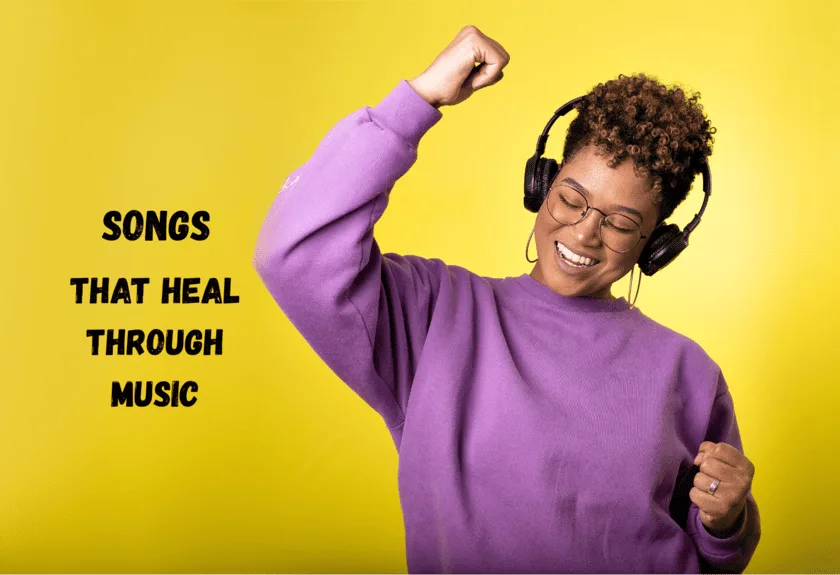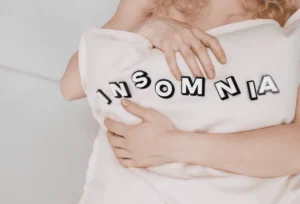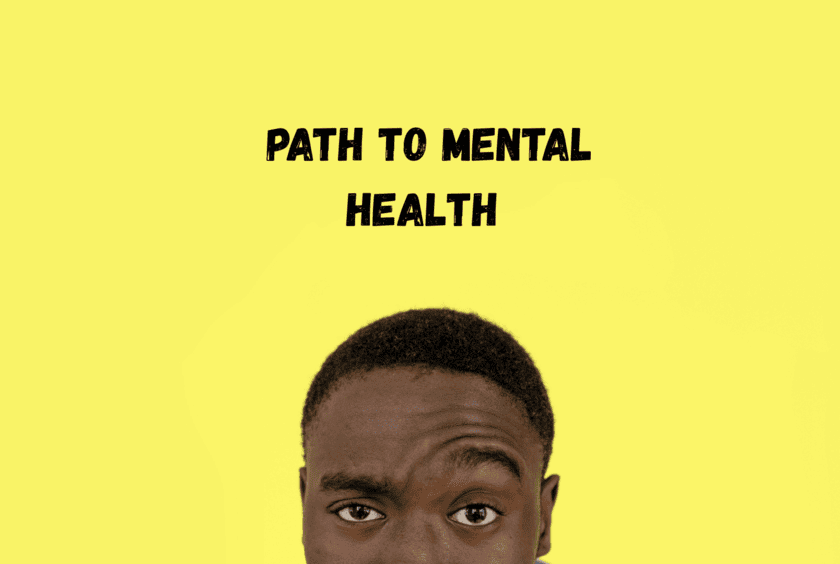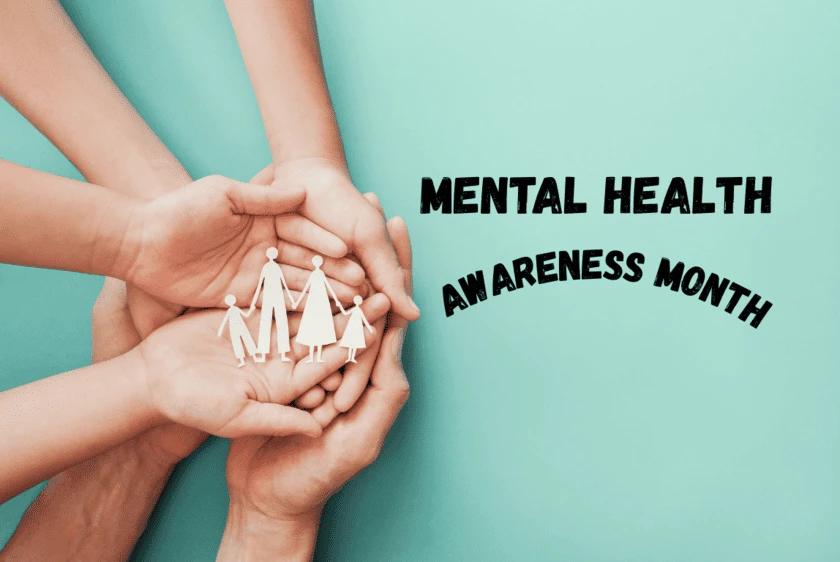The Healing Power of Music
How Music Impacts Mental Health
Do you know any songs about mental health? Music has long been recognized as a powerful tool for emotional and mental well-being. It can lift our spirits, calm our minds, and even help us process complex emotions. For those navigating the chaos of daily life, music offers a moment of respite, a way to reconnect with ourselves when everything else feels overwhelming. Whether it’s through joyful melodies that make us dance or soothing tunes that help us unwind, music has the unique ability to influence our mood and mindset in profound ways.
Research shows that listening to music can reduce stress, alleviate symptoms of anxiety and depression, and even improve cognitive function. It’s a form of self-care that requires no special equipment, no lengthy routines—just a willingness to press play.
The Science Behind Music and Emotions
Why does music have such a strong effect on our emotions? The answer lies in our brain’s response to sound. When we listen to music, our brain releases dopamine, a neurotransmitter associated with pleasure and reward. This is why certain songs can make us feel euphoric or deeply moved. Additionally, music activates the limbic system, the part of the brain that governs emotions, memories, and arousal. This connection explains why a specific song can transport us back to a moment in time or evoke a flood of feelings.
Music also influences our heart rate, breathing, and even stress hormones, making it a natural way to regulate our emotional state. Whether it’s the rhythm, melody, or lyrics, every element of music can play a role in shaping how we feel.
Why Music Is a Tool for Self-Care
In a world overflowing with responsibilities and distractions, music offers a simple yet effective way to prioritize self-care. It’s a practice that can be seamlessly integrated into your daily routine, whether you’re commuting, working, or winding down at the end of the day. Here’s how music can serve as a self-care tool:
- Stress Relief: Slow-tempo music can lower cortisol levels, helping you relax and decompress.
- Mood Boost: Upbeat tunes can elevate your spirits and provide a quick emotional pick-me-up.
- Mindfulness: Listening to music mindfully can help you stay present and grounded.
What makes music particularly powerful as a self-care tool is its accessibility and adaptability. You don’t need to be a musician or spend hours curating a playlist. Simply tuning in to what resonates with you in the moment can make a significant difference.

Top Songs About Mental Health
Iconic Tracks Addressing Anxiety and Depression
Music has long been a refuge for those grappling with anxiety and depression, offering solace and understanding when words fall short. Iconic tracks like “Breathe Me” by Sia and “Numb” by Linkin Park delve into the raw emotions of these struggles, providing a sense of connection and validation. These songs remind us that we’re not alone in our battles, and that it’s okay to feel vulnerable. Whether you’re seeking comfort or a way to articulate your emotions, these tracks can be a powerful companion on your journey.
Upbeat Songs to Boost Motivation and Hope
When the weight of mental health challenges feels overwhelming, upbeat songs can serve as a beacon of hope and motivation. Tracks like “Fight Song” by Rachel Platten and “Shake It Out” by Florence + The Machine infuse energy and positivity, encouraging listeners to keep moving forward. These songs are perfect for those moments when you need a reminder of your strength and resilience. They’re not just about escaping the darkness—they’re about finding the light within it.
Emotional Ballads for Reflection and Healing
Sometimes, healing begins with reflection, and emotional ballads provide the perfect soundtrack for this process. Songs like “Fix You” by Coldplay and “Someone Like You” by Adele offer a space to process emotions and find catharsis. These tracks are deeply introspective, allowing listeners to confront their feelings and begin the journey toward healing. Whether you’re seeking closure or simply a moment of quiet introspection, these ballads can be a soothing balm for the soul.
Music as a Daily Self-Care Practice
In the whirlwind of daily responsibilities, music can be a grounding force—an accessible, powerful tool for emotional regulation and mindfulness. Unlike rigid self-care routines that demand too much time or energy, integrating music into your day is simple, flexible, and deeply personal. Whether you’re seeking comfort, clarity, or catharsis, here’s how to make it work for you.
Creating a Mental Health Playlist
Curating a playlist tailored to your emotional needs is like crafting a sonic first-aid kit. Start small: choose 5-10 songs that resonate with your current state or desired mood. Consider these categories:
- Comfort songs – Familiar melodies that feel like a warm embrace (e.g., nostalgic tracks or soothing instrumentals).
- Energy boosters – Upbeat rhythms for moments when motivation lags.
- Release anthems – Lyrics or melodies that help process anger, sadness, or frustration.
- Grounding tunes – Minimalist or nature-inspired sounds to ease anxiety.
Keep your playlist fluid. Update it as your emotions shift—there’s no wrong way to do this.
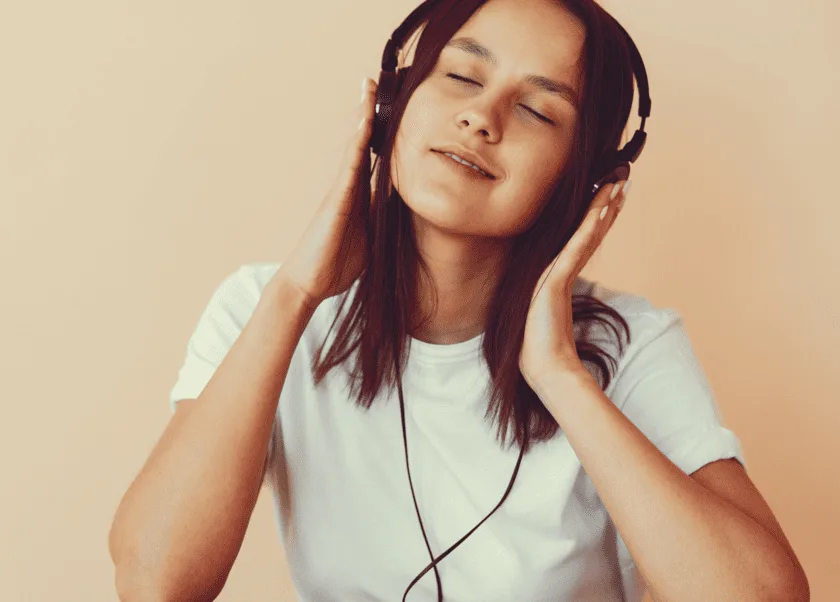
Using Music to Process Emotions
Music doesn’t just distract; it helps us feel without overwhelm. Try these approaches:
- Match your mood first – If you’re sad, let a melancholic song validate that feeling before transitioning to something lighter.
- Lyric journaling – Note lines that strike you. Why do they resonate? This uncovers subconscious emotions.
- Movement as release – Dancing, swaying, or even tapping along can physically discharge tension.
“Music melts all the separate parts of our bodies together.” – Anaïs Nin
Incorporating Music into Mindfulness Routines
Pairing music with mindfulness bridges creativity and presence. Try these micro-practices:
| Situation | Practice |
|---|---|
| Morning commute | Focus on one instrument’s rhythm. Let it anchor you to the present. |
| Stressful moments | Close your eyes for one song. Breathe deeply with the melody. |
| Before sleep | Play soft, repetitive tunes to slow your thoughts. |
Key tip: Volume matters. Lower volumes encourage inward focus, while louder music energizes.
Stories Behind the Lyrics
Artists Who Share Their Mental Health Journeys
Music has long been a vessel for expression, and many artists have courageously used their platforms to share their personal struggles with mental health. From Demi Lovato’s raw confessions about bipolar disorder to Logic’s anthem 1-800-273-8255, these songs serve as powerful narratives that resonate deeply with listeners. By opening up about their experiences, these artists not only destigmatize mental health challenges but also remind us that we’re not alone in our battles.
These stories often provide a sense of relief and validation, especially for those who may feel isolated in their struggles. When artists like Adele or Kid Cudi speak candidly about depression or anxiety, it creates a space where listeners can find solace and understanding in shared experiences.
How Relatable Songs Create Connection and Belonging
Music has a unique ability to foster connection, and relatable lyrics play a significant role in this process. Songs that articulate feelings of loneliness, heartbreak, or resilience can feel like a mirror reflecting our own emotions. For example, Billie Eilish’s introspective lyrics often echo the internal dialogues many of us have during moments of self-doubt or despair.
When a song captures a sentiment we’ve struggled to put into words, it creates an instant bond. This connection goes beyond the individual; it builds a sense of belonging to a larger community of people who understand and empathize with our struggles. As listeners, we find comfort in knowing that someone else has walked a similar path—and survived.
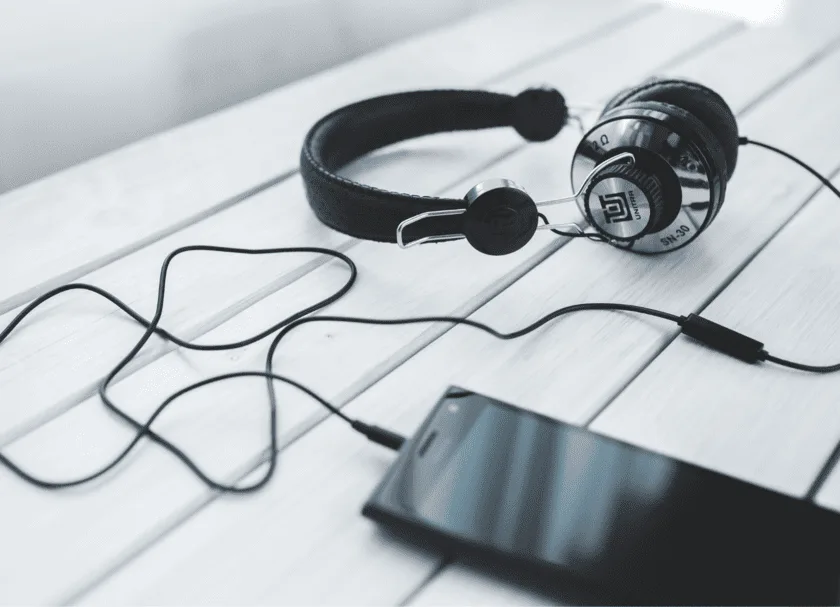
The Impact of Vulnerability in Music
Vulnerability in music is transformative. When artists strip away the facade and reveal their rawest emotions, it invites listeners to do the same. This mutual openness can be healing, as it encourages us to confront our own feelings rather than burying them. Tracks like Lewis Capaldi’s Someone You Loved or Linkin Park’s Heavy are testaments to the power of vulnerability, offering a cathartic release for both the artist and the audience.
Vulnerability also humanizes artists, making their struggles feel more relatable and their triumphs more inspiring. It reminds us that even those who seem larger than life face challenges, and their willingness to share these moments can be a source of hope and motivation.
“Music is the divine way to tell beautiful, poetic things to the heart.” – Pablo Casals
By embracing vulnerability, artists not only create meaningful art but also inspire listeners to embrace their own imperfections. This authenticity fosters a deeper connection between the creator and the audience, turning songs into shared experiences that strengthen our collective resilience.
Music Therapy and Professional Support
What Is Music Therapy and How It Works
Music therapy is a structured, evidence-based practice where trained professionals use music to address emotional, cognitive, and social needs. Unlike simply listening to your favorite songs, it involves intentional techniques—like songwriting, guided improvisation, or rhythmic exercises—to foster healing and self-expression. It’s not about musical skill; it’s about how sound and rhythm can unlock emotions, reduce stress, and even improve focus.
- Active vs. receptive methods: Playing instruments or singing (active) vs. listening to curated playlists (receptive).
- Personalized goals: Therapists tailor sessions to individual needs, whether managing anxiety, processing grief, or enhancing communication.
“Music therapy meets you where you are. A drum circle might release tension, while a lyric analysis could help reframe negative thoughts.” — Certified Music Therapist
When to Seek Professional Help for Mental Health
While music can be a powerful self-care tool, some challenges require professional support. Consider reaching out if you notice:
- Persistent sadness, anger, or numbness that interferes with daily life.
- Difficulty sleeping or concentrating for weeks.
- Withdrawing from relationships or activities you once enjoyed.
Remember: Seeking help isn’t a sign of weakness—it’s a step toward reclaiming balance. Therapists can integrate music therapy with other modalities for a holistic approach.
Combining Music with Other Holistic Practices
Music pairs beautifully with mindfulness and movement. Try these simple integrations:
| Practice | How Music Enhances It |
|---|---|
| Meditation | Ambient sounds or binaural beats deepen focus. |
| Yoga | Rhythmic melodies sync with breathwork. |
| Journaling | Instrumental tracks unlock creative flow. |
Pro tip: Start small—a 5-minute morning playlist with your tea can set a calmer tone for the day.
Building a Community Through Shared Music Experiences
Music has always been a bridge between hearts—a universal language that transcends words. When it comes to mental health, this connection becomes even more powerful. Sharing music isn’t just about swapping songs; it’s about creating spaces of understanding, empathy, and belonging. Whether you’re joining a group, exchanging playlists, or simply listening with someone who “gets it,” these shared moments can become anchors in your self-care journey.

Joining Music-Based Groups
Sometimes, the weight of life feels lighter when carried together. Music-focused groups—whether online or in-person—offer a safe space to explore emotions, share struggles, and celebrate small victories through sound. Here’s why they matter:
- You’re not alone: Hearing others share their stories through lyrics or playlists can remind you that your feelings are valid and shared.
- Structured support: Many groups blend music therapy techniques with open discussions, giving you both creative expression and community.
- No pressure: Unlike rigid self-improvement plans, these groups often emphasize being over fixing—a relief for anyone tired of “shoulds.”
Look for local meetups, virtual communities (like Discord or Facebook groups), or even workshops at wellness centers. The key? Find a space where the vibe feels right—not another obligation, but a refuge.
Sharing Playlists with Friends and Loved Ones
A playlist can be a love letter, a cry for help, or a shared memory—all without a single spoken word. When words fail, music speaks for us. Try these simple ways to deepen connections:
- Theme-based exchanges: Swap “songs for bad days” or “tracks that feel like sunlight” with a friend. It’s a gentle way to say, “I see you.”
- Collaborative playlists: Platforms like Spotify let you build lists together in real time, turning music into an ongoing conversation.
- Gifts of sound: Instead of asking, “How are you?” send a song that says it for you. Often, the right melody opens doors words can’t.
“Music is the shorthand of emotion.” — Leo Tolstoy
How Music Fosters Empathy and Understanding
Ever heard a song and thought, “This is exactly how I feel”? That’s the magic of music—it mirrors our inner worlds. But it also does something extraordinary: it helps us step into others’ experiences. Here’s how:
| How It Works | Why It Helps |
|---|---|
| Lyrics as storytelling | Hearing someone else’s pain or joy in a song builds emotional bridges—even with strangers. |
| Shared rhythms | Dancing or singing together releases oxytocin, the “bonding hormone,” creating instant connection. |
| Music as memory | A song tied to a moment (like a concert or road trip) becomes a collective touchstone for groups. |
Next time you’re struggling to explain how you feel, try playing a song instead. Or when someone shares their favorite track with you, listen deeply. Those three minutes might teach you more about them than hours of small talk.
Taking the First Step: Start Your Healing Journey
Embarking on a healing journey can feel daunting, especially when life is already overflowing with responsibilities. But remember: healing doesn’t require perfection—just intention. Music is a gentle, accessible companion that can guide you toward emotional balance, one note at a time. Here’s how to weave it into your daily life without adding pressure.
Simple Ways to Integrate Music into Your Routine
You don’t need hours of free time to harness the power of music. Small, intentional moments can make a big difference:
- Morning reset: Start your day with a song that grounds you—something calming or uplifting, depending on what you need.
- Commute companion: Replace scrolling with a playlist that soothes or energizes your commute.
- Work breaks: Take 3 minutes to close your eyes and listen to a favorite melody. Let it reset your mind.
- Evening unwind: Wind down with softer tunes to signal to your body that it’s time to rest.
The key is consistency, not complexity. Even five minutes of mindful listening can shift your emotional state.
Explore and Discover New Songs
Healing isn’t static—your musical needs will shift with your emotions. Stay open to discovery:
- Ask friends or online communities for songs that helped them through similar struggles.
- Let streaming algorithms guide you—explore “mood” or “therapy” playlists.
- Revisit old favorites with fresh ears; you might hear them in a new light.
Curiosity is part of the process. There’s no “right” song—just what resonates with you in the moment.
Healing Is Personal and Ongoing
Some days, music will feel like a lifeline. Other days, it might not land the same way—and that’s okay. Healing isn’t linear. Progress is measured in small moments of relief, not just grand transformations.
“Music is the space between the notes—it’s in the pauses, the breaths, the quiet moments where healing happens.”
Be patient with yourself. What matters is showing up, even imperfectly.
FAQ: Music and Mental Health
- How do I know which songs will help me?
- Trust your instincts. If a song makes you feel understood or lighter, lean into it. There’s no universal playlist—your heart will guide you.
- What if I don’t have time for music?
- Start small. Even one song while brushing your teeth or waiting for coffee counts. Healing thrives in tiny, consistent moments.
- Can music replace therapy or other treatments?
- Music is a powerful tool, but it’s not a substitute for professional care. Think of it as a companion on your journey, not a replacement for other support.
Your first step is already here: you’re open to trying. Let music meet you where you are—today, tomorrow, and whenever you need it most.
Reference:
- SABRA. (2022, 23 de setembro). Benefícios da música para a saúde mental. https://www.sabra.org.br/site/musica-ajuda-saude/
- Play Jazz. (2025, 26 de fevereiro). Como a música ajuda no controle emocional. https://blog.playjazz.com.br/2025/02/26/como-a-musica-ajuda-no-controle-emocional/
- Fusar-Poli, L., Brondino, N., Politi, P., & Vita, A. (2024). Evidence for music therapy and music medicine in psychiatry: Transdiagnostic meta-review of meta-analyses. BJPsych Open, 10(1), e1. https://www.cambridge.org/core/journals/bjpsych-open/article/evidence-for-music-therapy-and-music-medicine-in-psychiatry-transdiagnostic-metareview-of-metaanalyses/F9E4A53369277834810C86D1B941CAE0
- American Psychiatric Association. “Warning Signs of Mental Illness.” Psychiatry.org, 2022, www.psychiatry.org/patients-families/warning-signs-of-mental-illness
